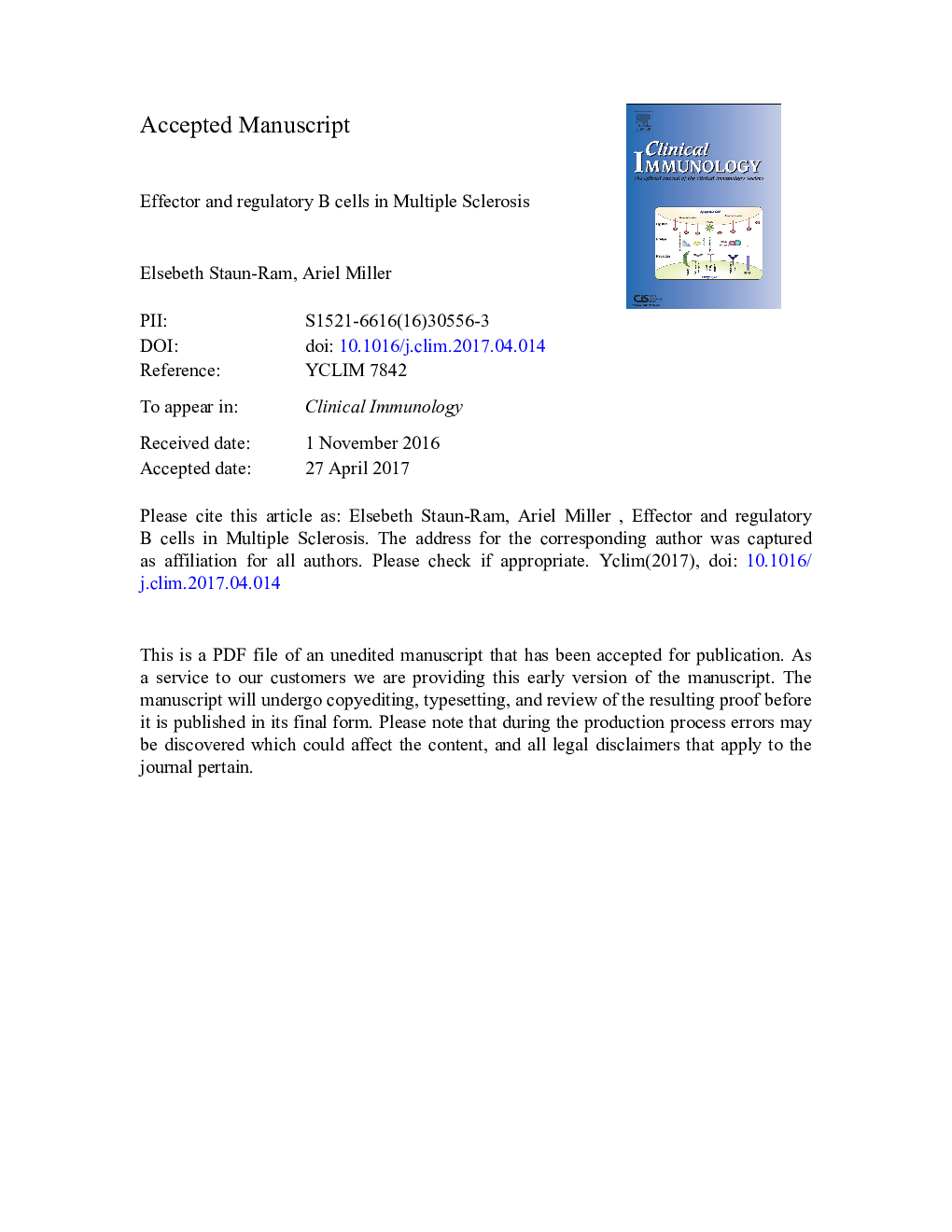| Article ID | Journal | Published Year | Pages | File Type |
|---|---|---|---|---|
| 8721490 | Clinical Immunology | 2017 | 40 Pages |
Abstract
The role of B cells in the pathogenesis of Multiple Sclerosis (MS), an autoimmune neurodegenerative disease, is becoming eminent in recent years, but the specific contribution of the distinct B cell subsets remains to be elucidated. Several B cell subsets have shown regulatory, anti-inflammatory capacities in response to stimuli in vitro, as well as in the animal model of MS: Experimental Autoimmune Encephalomyelitis (EAE). However, the functional role of the B regulatory cells (Bregs) in vivo and specifically in the human disease is yet to be clarified. In the present review, we have summarized the updated information on the roles of effector and regulatory B cells in MS and the immune-modulatory effects of MS therapeutic agents on their phenotype and function.
Related Topics
Life Sciences
Immunology and Microbiology
Immunology
Authors
Elsebeth Staun-Ram, Ariel Miller,
